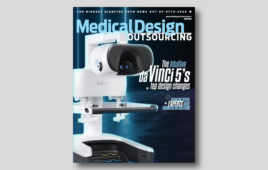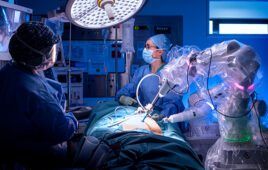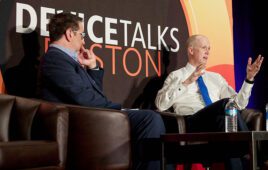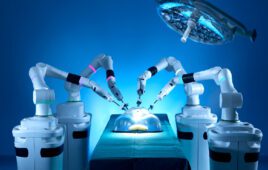 Medtech faces many challenges, but every challenge presents an opportunity — and DeviceTalks Boston will focus on making the best of them.
Medtech faces many challenges, but every challenge presents an opportunity — and DeviceTalks Boston will focus on making the best of them.
Leaders like to say every challenge presents an opportunity. It sounds uplifting and offers the benefits of being at least partially true, in life and in medtech.
It’s fair to say the medical device industry is staring at a vast sea of opportunity. Our nation’s healthcare system is under enormous stress. Our financial systems are showing signs of a different type of strain, and medical device companies of all sizes are being forced to make cuts to programs and, unfortunately, employees.
The challenges presenting all these opportunities might hurt in the short term. But, as attendees of DeviceTalks Boston will learn, leaders are emerging to guide the medical device sector out of the darkness.
We’ll examine many challenges May 10–11 at the Boston Convention and Exhibition Center. Fortunately, we’ll have experts on hand to help you find the opportunities as well.
Economic challenges
Finding sustained growth: Medical device companies of all sizes are getting drained by rising interest rates, the strong U.S. dollar, persistent supply chain disruptions and more, making it difficult to sustain growth.
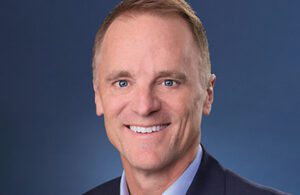
Mike Mahoney is chair and CEO of Boston Scientific. [Photo courtesy of Boston Scientific]
Workforce: Both global medical device companies and smaller startups are feeling pressure from larger economic pressures, forcing them to cut payroll and delay projects.

Joe Mullings is CEO of the Mullings Group [Photo courtesy of the Mullings Group
Engineering and innovation challenges
Competitive ablation field: Cardiac ablation is becoming an increasingly competitive field with entrenched and emerging players.

Tim Laske is Medtronic’s VP of Research & Business Development, Cardiac Ablation Solutions. [Photo courtesy of Medtronic]
Designing pediatric devices: Designing surgical implants for pediatric patients is difficult.
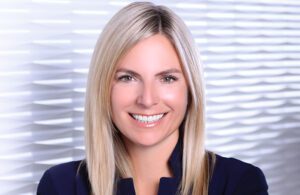
Rebecca Whitney is ZimVie’s global spine president. [Photo courtesy of ZimVie]
Incremental innovation: Medical device companies selling new technologies and tools face increased scrutiny from hospital technology committees. Hospitals are in crisis mode and have less time to onboard new tools, so any new tech must be essential.

Dr. Nitin Goyal is Zimmer Biomet’s chief science, technology and innovation officer. [Photo courtesy of Zimmer Biomet]
Sensor overload: Sensors are small and effective enough to find a home on many medical devices, but when does their addition make sense?
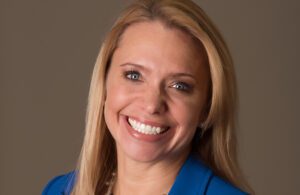
Boston Scientific SVP and President of Urology Meghan Scanlon [Photo courtesy of Boston Scientific]
Risks with longer medical device lifespans: Medical device makers building implantable devices to treat chronic diseases need to account for two important factors. First, materials used to make medical devices degrade over time, sometimes becoming toxic to the patients they’re built to help. Second, neurostimulators and other implantable devices requiring batteries need power sources with long lives or wireless rechargeability, or else the patient likely faces repeated surgical procedures.
Opportunity: Two presentations at DeviceTalks Boston will examine what it takes to build medical devices with longer lives. PSN Labs will look at how supply chain disruptions have forced device makers to use less optimal materials, increasing the risk of non-biocompatibility over time. PSN will offer possible solutions. Meanwhile, Resonant Link, which is collaborating with major medical companies, will examine advancements in wireless power that will lead to devices that last longer and create a competitive advantage.
Healthcare systemic challenges
Healthcare workers: Hospitals and other healthcare settings are facing shortages of physicians, nurses and other critical staff.

BD CEO, President and Chair Tom Polen [Photo courtesy of BD]
The next day, Jeffrey Alvarez, chief strategy officer of Moon Surgical, joins a panel of digital health, robotics and imaging leaders to discuss the future of the operating room. Moon Surgical’s Maestro robot — which can hold surgical tools in place — is designed to replace surgical assistants in the OR.
Role of diagnostics: The pandemic elevated the essential role of point-of-care testing.
Opportunity: Dave Hickey, EVP and president of the life sciences segment at BD, will review the shifting role of diagnostics in healthcare over the past three years. Hickey led BD’s Integrated Diagnostic Systems unit during the COVID-19 surge in 2020 and 2021. BD is on track to expand its portfolio of at-home diagnostics, putting more healthcare in the hands of patients.
Streamlining training and clinical testing: Medical training and clinical testing are both arduous processes that require enormous time and resources.
Opportunity: We’ll commit a significant portion of our Day 1 agenda to virtual technologies that simulate a healthcare workplace setting or the human body itself. FundamentalVR, a healthcare technology company using VR, haptics (the sense of touch), and machine learning, will demonstrate the value of these technologies in training. According to FundamentalVR, its tools can be used to create long-distance training platforms for medical device and pharmaceutical companies as well as healthcare systems. Meanwhile, Dassault Systèmes is taking virtual simulation technology to the patient level. In a presentation that immediately follows, the company will explain the power of virtual twins, which are dynamic, digital representations of patients. Companies using virtual twins can simulate and test treatments on virtual cohorts when in development and use streams of real-world data fed from sensors to the virtual twin when used in clinical trials and ongoing care. These insights allow medtech organizations to bring better products to market more efficiently.
Medical sales: Medical device sales teams are under increasing scrutiny as being an expensive part of bringing new products to market.
Opportunity: DeviceTalks Boston will feature solutions from two different companies — AcuityMD and Integrity Solutions — that offer medical device companies new tools, data and approaches to build new markets more effectively. AcuityMD is offering access to a trove of reimbursement data that can help sales teams prioritize sales targets. Integrity Solutions, meanwhile, will provide a comprehensive, actionable roadmap for enlisting clinicians into the customer-facing sales teams.
Environmental, social and governance challenges
Sustainability: Medical devices can produce a profoundly positive effect on individuals needing care, but they create enormous pressure on waste streams once they’re outdated and discarded.
Opportunity: Medical device makers can avoid this growing catastrophe by building sustainability into their designs. In two different sessions, leaders Canon Virginia, Gradian Health Systems and Sagentia Innovation will examine how medical devices can be made with a view toward global health.
Healthcare equity: How can we ensure life-saving medical technology reaches everyone who needs it?
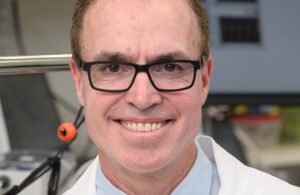
Kevin Bourque, Abbott divisional VP of R&D [Photo courtesy of Abbott]
These are just some of the topics we’ll be addressing at DeviceTalks Boston on May 10-11. Whatever challenge you’re facing, I think you’ll find the support you need at the meeting. Register at devicetalks.com. See you in Boston!

